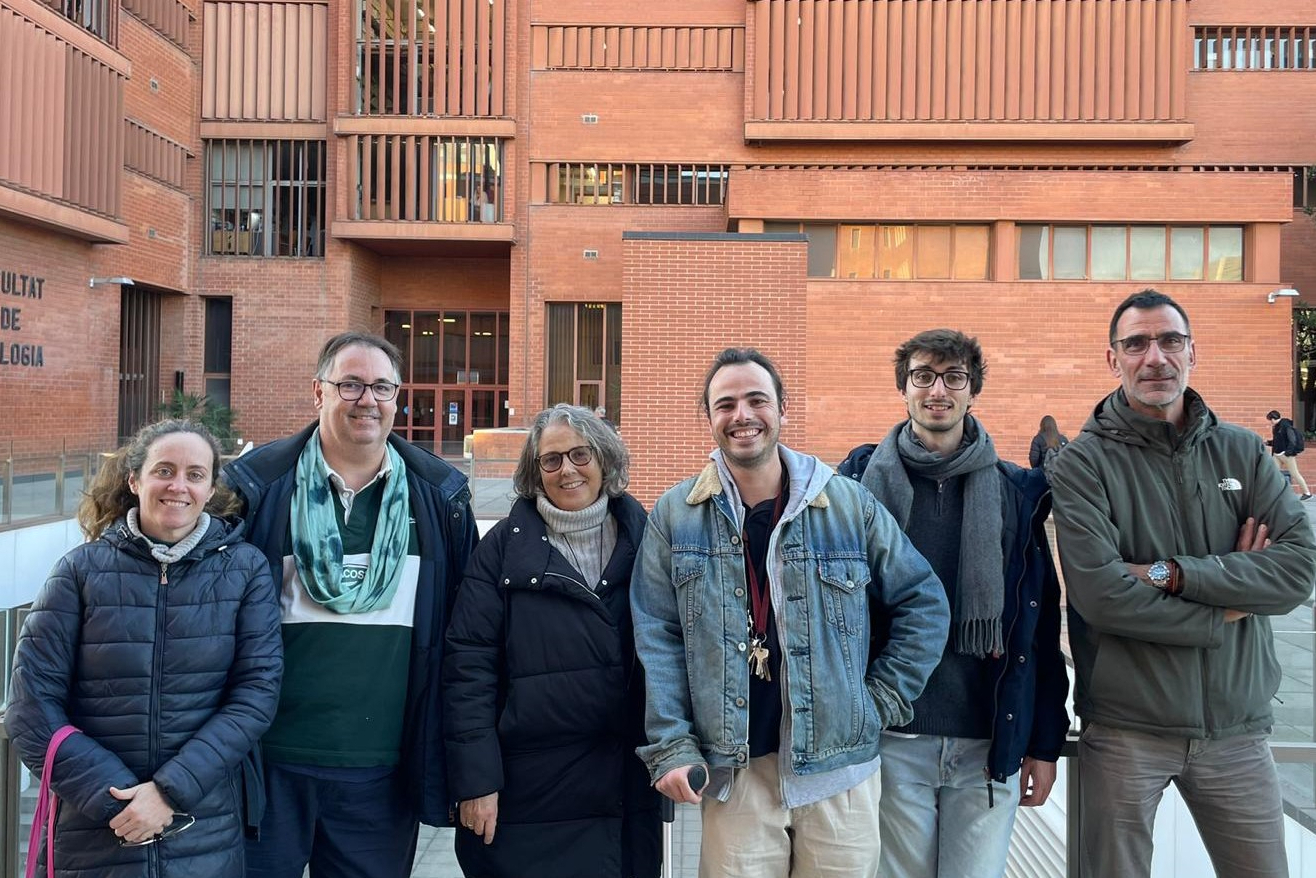
Non-invasive method to assess the health of fish populations
The project will make it possible to check the welfare and health of the animals through the use of bioindicators of the skin mucus.
(Year 2024)
Dr. Antoni Ibarz, a professor at the Faculty of Biology of the University of Barcelona (UB), has led the development of a non-invasive method for assessing the health of fish populations in farming settings and experimental studies. It is a pioneering method that makes it possible to determine the animals’ conditions and to check the effects of their diet.
The project consists of assessing the welfare and health of fish by using skin mucus biomarkers. Epidermal mucus is a viscous, gel-like substance produced on the skin surface of fish. This mucus is a protective secretion that fish can regulate and that acts as a physical, chemical, and biological barrier between the fish and the environment in which they live.
Different molecules have been detected in the epidermal mucus that serve as indicators of nutritional, physiological and defensive factors, such as levels of protein, glucose, lactate, cortisol, and antioxidant power, which provide information on nutritional, metabolic and stress conditions, a very important parameter in animal culture.
Epidermal mucus can be obtained in a minimally invasive way, only by sedating the fish, which are not killed and can be returned to the facilities. The research carried out has managed to make the extracted biomarkers easy, quick and economical to measure, so that they can be reported within a reasonable timeframe to interested companies.
Monitoring the health of fish populations
Companies in the aquaculture feed and production sector have shown great interest in being able to use this approach —which takes animal welfare into account— to conduct studies on the beneficial effects of the diets they are formulating, or to follow up or monitor the condition of their animals.
The project will allow companies to carry out pilot screening studies of different feed additives on a small scale. At the same time, the study could serve to establish reference values for these biomarkers both in species of productive interest and for use in monitoring protected species or species of special interest for biodiversity.
Research into this new non-invasive method has been undertaken by the Non Invasive Biomarkers in Fish (NIBIFish) research group led by Dr. Antoni Ibarz and Dr. Laura Fernández, with the collaboration of the Molecular Biology of Pathogenic Bacteria and Antimicrobial Strategies group led by Dr. Cristina Madrid and Dr. Carlos Balsalobre.
Adisseo, a leading additive manufacturer
Adisseo, a leading company in the production of additives and nutritional solutions for animal feed, has been the first corporation interested in the possibility of using these biomarkers to carry out rapid prospective studies of different feed additives. On the one hand, this will allow them to gauge their beneficial effects on the epidermal mucus barrier and, on the other, it will help them to select the products with the most interesting results in order to conduct more extensive studies in farming conditions or to confirm their initial studies in an external entity of recognised prestige such as the University of Barcelona.

